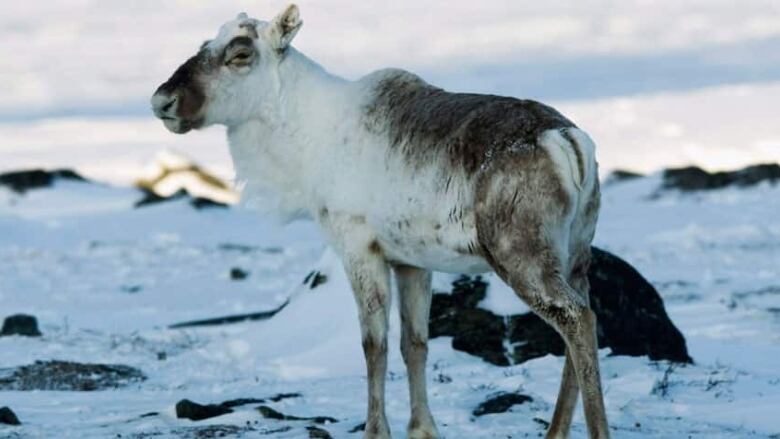Plan proposed to protect dolphin and union caribou herd means further study
For now, no reason to limit dolphin or union caribou harvest

In the face of a declining population, aplan tohelp dolphin and union caribou in the Northwest Territories and Nunavut has been inked.
In 2015, dolphin and union caribouwere declared a species of "special concern"by the N.W.T.Departmentof Environment and Natural Resources. According to information found on the N.W.T.species at risk website, these caribou are "a species that may become threatened or endangered because of a combination of biological characteristics and identified threats."
On Monday,the Conference of Management Authorities the group of boards and governments responsible for N.W.T. species-at-risk agreed on a management plan to protect herd numbers.
Typically when species are listed as a special concern the management groupis given two years to create a management plan. However, this one was given a 15-month extensionbecause the plan required the co-operation of the Northwest Territories, Nunavut, andfederal governments, as well as 12 other co-management partners.
Thin, broken sea ice a concern for migration
In 1997, the dolphin and union caribou population was above 30,000, but the population was 18,400 in 2015.
Sea ice is posing problems for the caribou, according to BrandonLaforest,a senior specialist of Arctic species and ecosystems withWorld Wildlife Fund Canada. The caribou migrate twice a year from Victoria Island to the mainland, butthe animal struggles if seaice isn't fully frozen or if it has been destroyed by ships.
"That was identified as one of the major threats," Laforest said.
A draft of the management plan outlinesconcerns heard at a round-table discussion inKugluktuk, Nunavut. Community members were alarmedbecause many caribou had been seen with large balls of ice on their fur after having fallen through the sea ice during migration.
Community members also spoke of groups of up to 150 caribou floating on pieces of ice in Coronation Gulf.
Harvest should not be limited, yet
Beyond outliningthe main threats and positive influences on the animals, the plan recommendsfilling in knowledge gaps on things such as pregnancy rates, harvesting ratesand predator-prey relationships.
"Dolphin and union caribou don't seem to have gotten to that stage where harvest should be stopped or limited, but it's definitely a knowledge gap in terms of how much harvest is going on," Laforest said.
Further details will come in the next stage, which is the implementation agreement.
Brett Elkin, a representative on the species at risk management board, said this should be done by December 2018.
Ministers from the federal government, as well as theNunavut and Northwest Territories governments, will then have to choose if they will accept themanagement plan by March 2018.
Feds now considercaribou endangered
The Committee on the Status of Endangered Wildlife in Canada (COSEWIC) first recommended the federal government list caribouas a species of special concern in 2004. But the federal government didn't list them as such until seven years after the recommendation.
COSEWIChas since changed the status of the caribou from a special concern to endangered.
Laforestsaid he would have liked the federal government to have taken action sooner.
"From a territorial level, it's pushing it that it is taking the full timeline but it is understandable that consultation is necessary,"Laforestsaid.
"[But] at the federal level, it's completely unacceptable that it's taken this long for a management plan to be drafted."












_(720p).jpg)


 OFFICIAL HD MUSIC VIDEO.jpg)
.jpg)



























































































